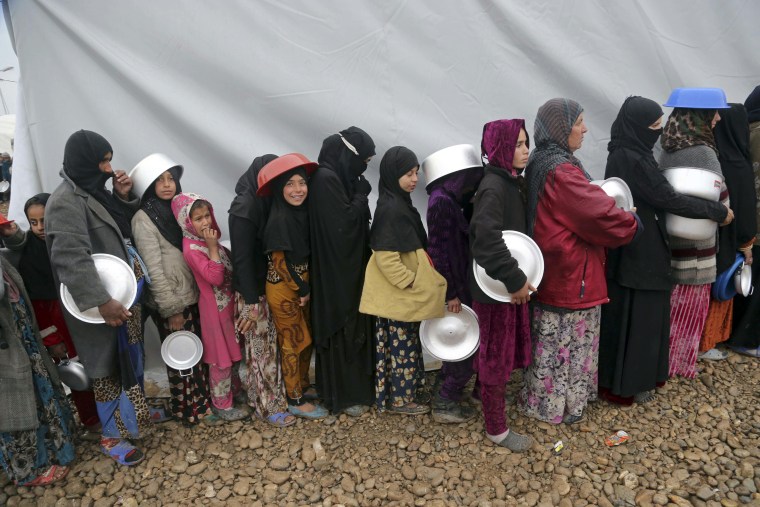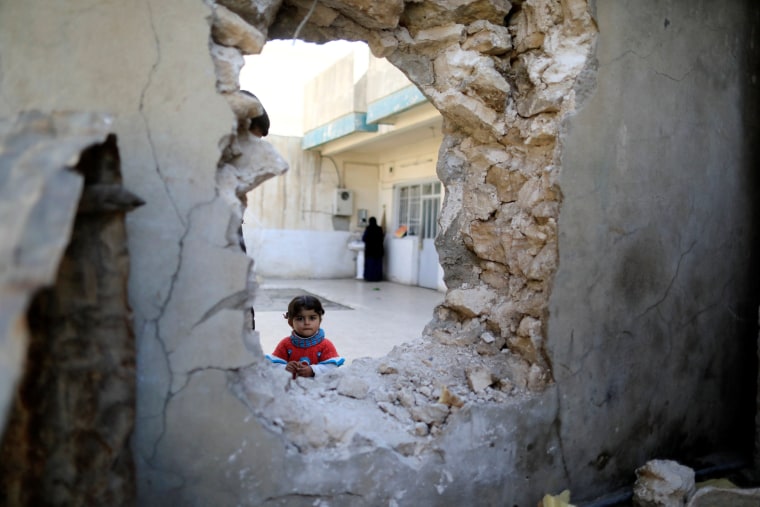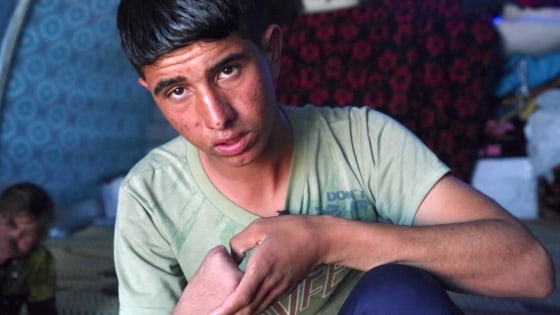Ali Ibrahim can’t read, but he knew the carefully folded decree he was carrying said that ISIS cut his hand off for stealing.
The shy 18-year-old said he stole out of hunger, one of thousands of tales of misery at the Hamam al-Alil camp for internally displaced people south of the Iraqi city of Mosul.
“I'm responsible for three families. My brothers can't work. I went and stole to feed my family. ISIS cut my hand off,” he said matter-of-factly while gesticulating with his left hand. He said his right hand was amputated with a meat cleaver.
ISIS overran swathes of Iraq in June 2014, imposing their vicious brand of law. The Iraqi army has since pushed back and are now waging campaign to oust the group from Mosul, its last urban stronghold in the country.
More than 210,000 Iraqis have been forced to flee the city since the military operation began in October, according to the United Nations refugee agency, UNHCR.
Aid groups are struggling to meet the needs of all the people fleeing the city — between 1,000 to 8,000 new internally displaced people arrive at the camps every day.
Many arrive visibly traumatized, hungry and dehydrated, according to the UNHCR.

At the Hamam al-Alil camp, one of several near Mosul, children played with garbage on a recent day amid rows of tents pitched on stony ground.
Newly arrived families sat in huddles in the open with few belongings. Many walked for hours with children and elderly relatives through sniper fire and mortar strikes to reach the camp.
Ibrahim fled with his brother, who had been taken into custody by Iraqi security forces who were screening camp residents for connections to ISIS.
“My brother swore allegiance to them. He was trying to get me out. He didn't stay long, and as soon as they cut my hand, he quit,” Ibrahim said.
Now he and thousands of others rely on aid and wait for an end to the fighting so they can go home.
"I ask any kind people out there to help me get a prosthetic hand, God willing," he said, holding up his stump.


